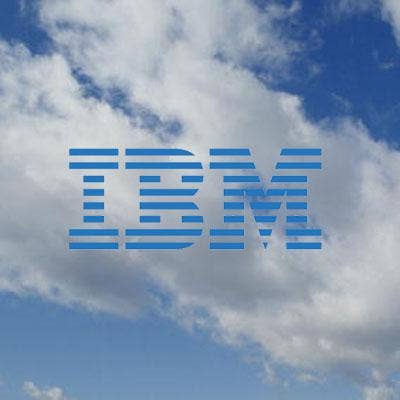Pole Position: Ranking The Top 5 IaaS, PaaS And Private Cloud Providers

Top 5
With Q1 earnings now in, Synergy Research Group crunched the latest numbers and updated its positioning of the leading infrastructure-as-a-service, platform-as-a-service and private cloud providers.
The analysis reveals what we've all long known: Amazon Web Services is still a singularly dominant force in the industry.
But in a market that has finally surpassed the $5 billion quarterly revenue milestone, even at a time in which the strengthening U.S. dollar is handicapping revenue growth, AWS isn't the only provider that can celebrate its success.
Here are the top five in this category, and then some.

5. Salesforce
Since Synergy is only tabulating cloud infrastructure and platform services, Salesforce doesn't get credit for its celebrated and pioneering software-as-a-service business in this report.
But the customer relationship management giant, even beyond its flagship product, still took in $200 million in revenue over the past quarter -- a segment of its business that grew by 34 percent, according to Synergy Research.
Salesforce is no longer the dominant leader in PaaS, but its Salesforce1 platform, which combines Heroku with Force.com, still keeps the innovative business in the company of an elite set of providers.

4. Google
Google's getting there.
A later entrant into the cloud hosting business, the Internet giant now stands in fourth place in the infrastructure and platform market, according to Synergy.
Google still commands only half the market of Microsoft, with $300 million in revenue for its Compute Engine and App Engine services. But at a healthy 74 percent year-over-year growth rate, it's catching up to Amazon faster than anyone other than Microsoft.

3. IBM
IBM over the past quarter recorded $400 million in revenue from its SoftLayer public cloud, BlueMix platform-as-a-service, and its managed private cloud offerings. Those businesses enjoyed 56 percent year-over-year growth, keeping Big Blue in the third position on this list.
IBM has also staked out a strong position leading the private and hybrid cloud services segment of the market, Synergy noted.
The venerable IT giant should take comfort in the knowledge that it would climb the standings fastest if Synergy's comparison were to include cloud hardware and software manufacturers as well as SaaS and professional services providers.

2. Microsoft
It looks like Microsoft didn't get the memo that Amazon Web Services was untouchable.
With a staggering year-over-year growth rate of 96 percent, Microsoft seems to believe it can contest for the top spot on this list.
That goal still looks far from realization. But Microsoft, while not exactly on Amazon's heels, is certainly separating itself from the rest of the pack.
Microsoft's Azure cloud earned $600 million in revenue in the past quarter, according to Synergy.

1. AWS
The world finally got a glimpse at AWS' books, and the world was impressed.
Amazon's cloud not only maintained its right to boast that it's bigger than the other four companies in this Top 5 list combined, but it also gained market share.
The IaaS juggernaut now controls 29 percent of the cloud infrastructure provider market, having grown 49 percent year-over-year.
With Amazon's Q1 revelations that its cloud division raked in $1.5 billion in revenues, with a strong $265 million in profits, it seems even harder to imagine a competitor bumping AWS from the top spot.
"On a strict like-for-like basis, AWS remains streets ahead of the competition in cloud infrastructure services," according to John Dinsdale, research director at Synergy.

The Runners Up
Several diverse companies are looking to break into the Top 5 of cloud infrastructure providers.
Behind Rackspace, which notched sixth place, we see a series of international contestants: Fujitsu, NTT and Deutsche Telekom.
Rounding out the final dozen are AT&T, HP and finally, Chinese e-commerce giant Alibaba, according to Synergy.